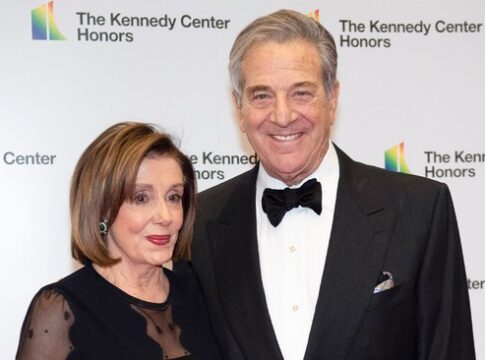Robert F. Kennedy Jr. is taking increasingly bizarre and contradictory positions in his ongoing crusade to inject pandemonium into the 2024 election. Right now the former third-party candidate is asking the U.S. Supreme Court to restore his name to the ballot in New York, asserting a constitutional right to run for president in the state. At the same time, he is asking the Wisconsin Supreme Court to remove his name from the ballot in that state, asserting a constitutional right not to run there. Moreover, because it is too late to print new ballots in Wisconsin, Kennedy is demanding that clerks manually place stickers over his name on some 4 million existing ballots. Election officials say this untested improvisation could jam up voting tabulators, making it impossible to scan ballots in a key swing state on Election Day and requiring a drawn-out hand count instead.
That may well be the point: Kennedy’s tactics reflect an evident desire to sabotage the efficient administration of the election and undermine trust in its outcome. He appears eager to aid Republican candidate Donald Trump by acting not as a surrogate but as a chaos agent, sowing confusion and doubt at every turn.
At this point, RFK Jr. is running Schrödinger’s campaign, simultaneously seeking and disavowing the presidency in different states. After striving to get his name on the ballot in as many places as possible, Kennedy suspended his third-party run last month, endorsing Trump over Kamala Harris. The former candidate is now trying to take his name off the ballot in battleground states for fear that he might siphon off votes from Trump. Yet he is still fighting to keep his name on the ballot in other states, including New York. It is not entirely clear why Kennedy cares about staying on the ballot anywhere; his overall strategy, however, reflects an intent to destabilize the election and abridge the early voting period, as he did in North Carolina.
Kennedy was booted off the ballot in New York in August after a judge found that he had falsely claimed residence in the state on his nominating petition. (Smoking-gun evidence proved that he lied about living as a tenant at the listed address.) Every lower court affirmed that decision, agreeing that the false residence invalidated his candidacy. Yet Kennedy is now asking the U.S. Supreme Court to restore his name to the ballot in an emergency order. New York has already begun printing and mailing ballots, so this eleventh-hour change would massively disrupt early voting—but again, as in North Carolina, that seems to be the point. Kennedy’s lead counsel, Jed Rubenfeld, claimed that his client’s exclusion from the ballot condemns New Yorkers to be “irrevocably deprived” of their First Amendment right to support his campaign.
This argument is tough to swallow, given that RFK Jr. himself is fighting tooth and nail to ensure that millions of other voters are irrevocably deprived of their ability to support him. He is currently urging the Wisconsin Supreme Court to take his name off the ballot in the state, rehashing the arguments that secured him a victory at the North Carolina Supreme Court earlier this month. Wisconsin officials, who have already printed ballots and begun mailing them out, say it is far too late to remove Kennedy’s name. But the candidate has proposed a work-around: He argues that county clerks should be required to cut out and place a sticker over his name on each ballot—all 4 million of them.
The sticker solution is, it turns out, no solution at all, but rather the recipe for a logistical nightmare. Election officials have testified that this scheme threatens to derail the preparation and tabulation of ballots. On the front end, it would require an immense amount of additional work for county clerks, many of whom serve in the role in a part-time capacity, and none of whom has the budget for such extra labor. It would lead to voter confusion, especially since clerks would inevitably place some stickers a few centimeters off by accident, failing to fully occlude Kennedy’s name and accidentally blocking out another. And it would halt the mailing of absentee ballots abruptly and indefinitely, even though they are already going out to voters.
Perhaps most ominously, Wisconsin officials warn that RFK Jr.’s proposed fix would also subvert the counting of votes. Multiple clerks have attested that stickers would weigh down ballots, causing tabulators—which are calibrated to the ballot’s precise weight—to reject them. Tabulators may also misinterpret stickers as a voter error, leading the machines to wrongly invalidate legitimate votes. Efforts to reprogram this equipment would be complicated by the fact that many ballots have already been mailed without a sticker, so there would be two different kinds of ballots to tabulate. No one knows what would happen. “My machines might react one way to one that doesn’t have a sticker,” one clerk told Votebeat Wisconsin, “and a different way to one that does have a sticker.” And there is insufficient time to reprogram and test the machines in line with state standards anyway.
There’s an even more obvious problem: These adhesives will likely jam up voting tabulators, getting stuck in equipment that was never designed to accommodate them. “All it would take,” another clerk warned, “is a small portion of the sticker to fall off in the scanner to render it unusable for the entirety of Election Day.” Stickers could also adhere to other ballots, ripping them during tabulation and creating detritus that jams the scanners. The company that produces these tabulators has cautioned that its machines are not tested to handle a large volume of ballots with stickers. Adhesives are, in fact, not covered under its warranty or service plan, so county clerks would have to pay to repair all damage to the equipment.
All of this evidence of catastrophe points toward one outcome: Many if not all of Wisconsin’s 4 million ballots would have to be counted by hand, a process that is vastly slower and considerably less accurate than machine tallying. Votes would be counted differently in different parts of the state, depending on where the tabulators broke down. And Americans might not know the outcome of the race until weeks after the election, a frightening possibility given that Wisconsin could ultimately decide the presidential election.
RFK Jr.’s lawyers responded to these profound concerns with the following: “Does it matter if ballots with stickers on them have not been tested with voting equipment? No. It doesn’t matter.” They added that “we should presume that this can be done” because Wisconsin law allows for it in a single circumstance: the unexpected death of a candidate shortly before an election. As the state has explained, the Legislature believes that the extreme consequences of this solution “may be justified” in that one, unusual situation so that a dead candidate’s name may be replaced with the name of a live candidate. Otherwise, the legislative body has instructed courts and clerks to stay the course when a candidate like RFK Jr. demands a last-minute change.
There are, to put it mildly, many reasons to believe that Kennedy is not acting in good faith. The Wisconsin Elections Commission has sought to resolve this dispute expeditiously so that the state can prepare Plan B as soon as possible if it comes to that. Yet RFK Jr.’s lawyers have sought to slow down the process at every turn. When the commission tried to expedite the case to the Wisconsin Supreme Court, for instance, Kennedy’s lawyers opposed the motion, arguing that there was no real rush. They failed, and the state Supreme Court took up the case on Friday, promising a “prompt resolution.” (It also rejected Kennedy’s request for oral arguments, which would pointlessly inject further delay.)
Already, the court’s 4–3 liberal majority looks disinclined to take this chicanery seriously. Its actions so far suggest that the justices will not allow RFK Jr. to wreck Wisconsin’s election. The state may receive a reprieve this time around, in part because its citizens have elected a judiciary—unlike North Carolina’s—that won’t put up with such bald-faced interference with democracy. The U.S. Supreme Court is likewise almost certain to reject the ex-candidate’s frivolous bid to get back on the ballot in New York, which would now be impossible to mandate on the ground. This final chapter of Kennedy’s failed campaign should soon come to an ignominious close. But he may have already given Trump exactly what he wanted: yet another bogus excuse to reject the legitimacy and integrity of election results that he does not like.



